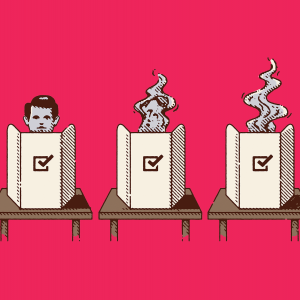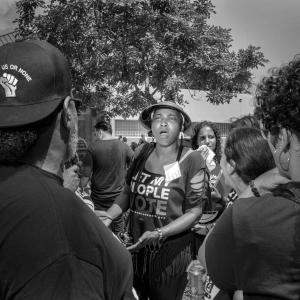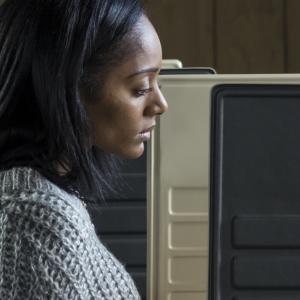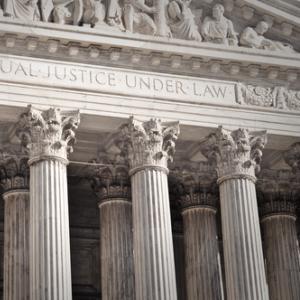
Myrna Pérez is director of the Voting Rights and Elections program at the Brennan Center for Justice and a Sojourners contributing editor.
Posts By This Author
The GOP Campaign To Make Elections Less Free
Voters are supposed to choose their politicians, not the other way around.
IN BACKLASH TO historic voter turnout, as of late May state legislators had introduced 389 bills to restrict voting in 48 states in the 2021 legislative sessions. The barrage of suppressive bills has been different from previous years in various ways. The sheer number of bills, the sweeping nature of the proposals, the procedural shenanigans, and the brazenness of lawmakers’ intent makes this like few legislative attempts in memory.
“Restrict” means the legislation would make it harder for Americans to register, stay on the rolls, and/or vote, as compared to existing state law. Most of these bills take aim at absentee voting and expanding voter ID requirements. Some would make voter registration harder, expand voter roll purges, and reduce early voting. Others seek to undermine the power of local officials and, in some cases, establish new criminal penalties to target those who run our elections.
Several of the concerning bills are bundled—a big number of anti-voter bills rolled into one. Take Georgia for example. Lots of people have heard about Georgia outlawing the provision of a bottle of water or a snack to people waiting in line to vote. But there’s more. Polling sites on wheels (mobile voting) are now effectively illegal in the state. Many voters who plan to vote by mail will be required to provide a driver’s license, social security number, state identification number, or a copy of identifying documentation. Ballot drop boxes will have to be located inside elections offices or early voting sites, likely resulting in the loss of convenient voting locations. Some provisions may exacerbate existing cyber-vulnerabilities or introduce new ones. These laws will clearly have a detrimental effect on the political voice of voters of color, especially those in the Black community. Mobile voting in Georgia, for example, was only used in Fulton County. That’s the home of Atlanta, which has the largest Black population of any city in the state.
The Disturbing Pattern of Voter Registration Purges
Eligible voters are being removed from voter rolls at an alarming rate in states with extensive histories of racial discrimination and election battleground states.
ELECTIONS ARE A chance for voters to throw their support behind leaders they think are going to best bring about our hopes and visions for what this country can be. But there are a lot of reasons why eligible Americans may have a hard time casting a ballot that counts. One reason is sloppy purges of the voter rolls.
Purges are a practice—often controversial—of election administrators removing or cancelling voters from registration lists in order to update state registration rolls. We all benefit from clean and accurate voter rolls, which are used by poll workers to identify who is registered to vote. There is no real dispute that people who are not eligible should be removed from the rolls. Too often, however, purge processes are shrouded in secrecy, prone to error, and vulnerable to manipulation.
Part of the reason purges are so controversial is because more voters are being purged than in the past, and there is no satisfying explanation as to why. Between 2006 and 2008, the U.S. purged about 12 million voters. Between 2016 and 2018, however, the U.S. purged about 17 million voters. That’s an increase of more than 33 percent—during a time when total population growth was about 6 percent and the number of registered voters increased by 18 percent.
Another reason purges are controversial are their locations. Battleground states like Ohio and Wisconsin have had recent purge flare-ups. Ohio has a practice whereby voters who miss one election are put on a track for removal from the rolls. While voters can take steps to get themselves off that track, many believe that starting the process after missing only one election is too aggressive.
Democracy Reform at the Top of the Agenda
On March 8, the U.S. House of Representatives passed the “For the People Act,” a historic piece of ethics and election reform legislation that responds to some of the biggest problems our democracy has experienced in recent times. The bill itself is bold and expansive — sweeping even — in the terrain it covers, and in the marker it lays down for what democratic reform should look like.
The Kingdom of God and a Florida Amendment
Restoring the right to vote to formerly incarcerated people models Christian forgiveness.
LAST FALL'S MIDTERM elections brought the country’s single biggest expansion of the right to vote since the 26th Amendment lowered the voting age to 18.
Florida voters passed Amendment 4, a change to the Florida Constitution that automatically restores voting rights to 1.4 million Americans who have been living and working in our communities but politically disenfranchised because of criminal convictions in their past.
Before this amendment, Florida’s policy was extra strict—one of permanent disenfranchisement for all felonies, meaning that it did not matter what you did, how long ago it was, or how old you were when you did it. If you had a felony conviction, you could not get your right to vote back unless the government decided to specifically grant you clemency. That meant that even people who had long ago completed probation and parole were still unable to vote.
This outcome in Florida is to be celebrated, for several reasons. Amendment 4 promotes full citizenship and permits more people to participate in the electoral proc-ess. It ends a blatant Jim Crow policy. It encourages successful reintegration into the community. But it also brings core Christian teachings into the public square—and it is important that we discuss these teachings because there is still work to be done.
Disenfranchisement of those convicted of felonies is still widespread, if not the norm. The clearest exceptions are Maine and Vermont, where persons never lose their voting rights, even while they are incarcerated. In two states—Iowa and Kentucky—any felony conviction results in permanent disenfranchisement unless the government specifically restores an individual’s rights, similar to the approach Florida just changed. Some states permanently disenfranchise certain citizens, depending on the felony conviction. A number of states—18, in fact—disenfranchise returning citizens until all terms of their sentences have been completed, which can end up being years after they have returned to the community.
What are we getting out of disenfranchising people the criminal justice system has determined are appropriate to be living and working alongside us? What does scripture advise?
Why I Vote
Seven contributors share why they show up at the ballot box.
A Deeply Moral Act
Voting is a decisive statement of Christian faith that I matter, justice matters, and others matter.
by Richard Rohr
Low voter turnout is generally a sign of a demoralized society, and people of power feed on that demoralization, knowing that they can then easily gerrymander, suppress and limit voting rights, and give elections to the rule of money and lobbyists—and there will be little outcry, because there is so little trust or even interest in the whole system anyway.
Yet this is largely where the U.S. is today.
The powers that control society are quite happy that it is always minorities of all stripes that first feel this powerlessness and this demoralization. Since the early days of representative government, it has been believed that democracy would only work if there was a truly free and informed citizenry. We presently seem to lack both in the U.S. This is why voting is a deeply moral act for me—in rebuilding confidence and encouraging an intelligent and hope-filled society. It is also a decisive act of Christian faith that I matter, society matters, justice matters, and others matter.
Not to vote is to hand our power and our dignity over to people who fear actual freedom, honest intelligence, and faith in the very goodness of humanity.
Voting for Change
I vote because many of my brothers and sisters can’t.
by Myrna Pérez
I vote for a lot of reasons. I love joining my fellow citizens in a community-minded act. I love having a say in picking the leaders who get to decide on things that matter to me. Increasingly, I love to vote and feel compelled to vote because I know there are about 4.5 million Americans living and working in communities across the country who cannot because they have a criminal conviction in their past.
Voting Rights - and Wrongs
We're in the midst of the biggest rollback of the rights to vote since Jim Crow.
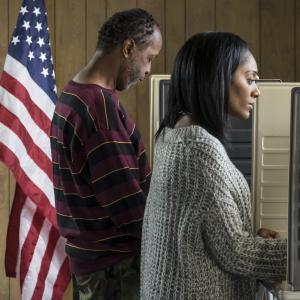
Burinlgham / Shutterstock
ELECTIONS BRING Americans together for a common cause—electing the leaders who are supposed to represent us, our families, and our communities. Just as we are all equal before God, voting is supposed to be an opportunity for us all to be equal: Young, old, rich, or poor, we each should have an equal voice in our democracy.
However, too many Americans may not have fair access to the polls in the upcoming election. Many citizens’ votes have become collateral damage in a battle waged by politicians who want to rig the system so that some people can participate in our democracy and some cannot.
Since the 2010 election, 21 states have instituted new voting restrictions—the biggest rollback of the right to vote since the Jim Crow era. This year will be the first presidential election with many of these new barriers in place, from requiring photo identification (which millions of Americans do not have) to curtailing early voting (which many citizens depend on to cast their ballots). On top of this, voters will go to the polls in November with the fewest federal protections against racial discrimination in half a century, due to a 2013 Supreme Court decision gutting a key provision of the Voting Rights Act.
One of the most frustrating examples comes from my home state of Texas. After numerous failed legislative attempts, and amid procedural irregularities and dramatic Latino population growth in the state, the Texas legislature in 2011 passed the country’s strictest photo ID law, requiring specific types of photo ID to vote. The law was crafted with surgical precision. For instance, voters can use a concealed gun license as proof of identification, but not a student ID card, even from a state university. All told, more than 600,000 registered Texas voters do not have the kind of ID now required to cast a ballot.
Voting Rights Act is an Important Moral Statement
Our country’s laws represent our values and our moral compass as Americans. They set norms, define transgressions, and mete out consequences for actions. And almost 50 years ago, our nation realized the harassment, intimidation, bureaucratic shenanigans, and violence so many African-Americans and other minority communities experienced when trying to exercise their rights to vote and participate in our great democracy. Our intolerance of such injustice led to the passage of the Voting Rights Act of 1965 — a great triumph in the defense of life, dignity, and equality.
Notwithstanding the near-universal praise the Voting Rights Act has received for ending some of the most overt discriminatory practices in our country’s voting history, there are some saying the Voting Rights Act’s time has passed. In fact, on Wednesday, the Supreme Court will hear oral arguments from Shelby County, Ala., that a key provision of the Voting Rights Act is unconstitutional and should be struck down. These arguments are misguided. The Voting Rights Act remains a vital piece of our national moral commitment never to permit racial discrimination in elections again.
Ash Wednesday: Restoring the Right to Vote
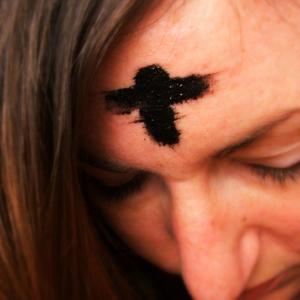
"Penance." Image via Wylio, http://bit.ly/wo6sWJ.
On Ash Wednesday, Catholics and many others will walk around with ashen crosses (or, by the end of the day, what look like indeterminate smudges) on our foreheads. Those ashes are strong symbols of core principles of the Catholic faith — symbols of repentance, identity, reconciliation, and renewal of baptism in the faith.
As a voting rights lawyer who is about as passionate about my work as I am about my faith, I can’t help but see parallels between the moral guidance I am given by my faith, and the policy choices that confront us in the secular world. These principles are reflected in the way we worship – and also in the actions we take in the secular world. This has led me and others to the conclusion that the 4 million Americans who lost their voting rights while incarcerated, and now live in our communities, deserve the chance to vote again upon release. It is both the just and the moral thing to do.
As we approach Ash Wednesday during this Holy Season, I encourage all Christians, guided by their core beliefs, to consider this idea.

